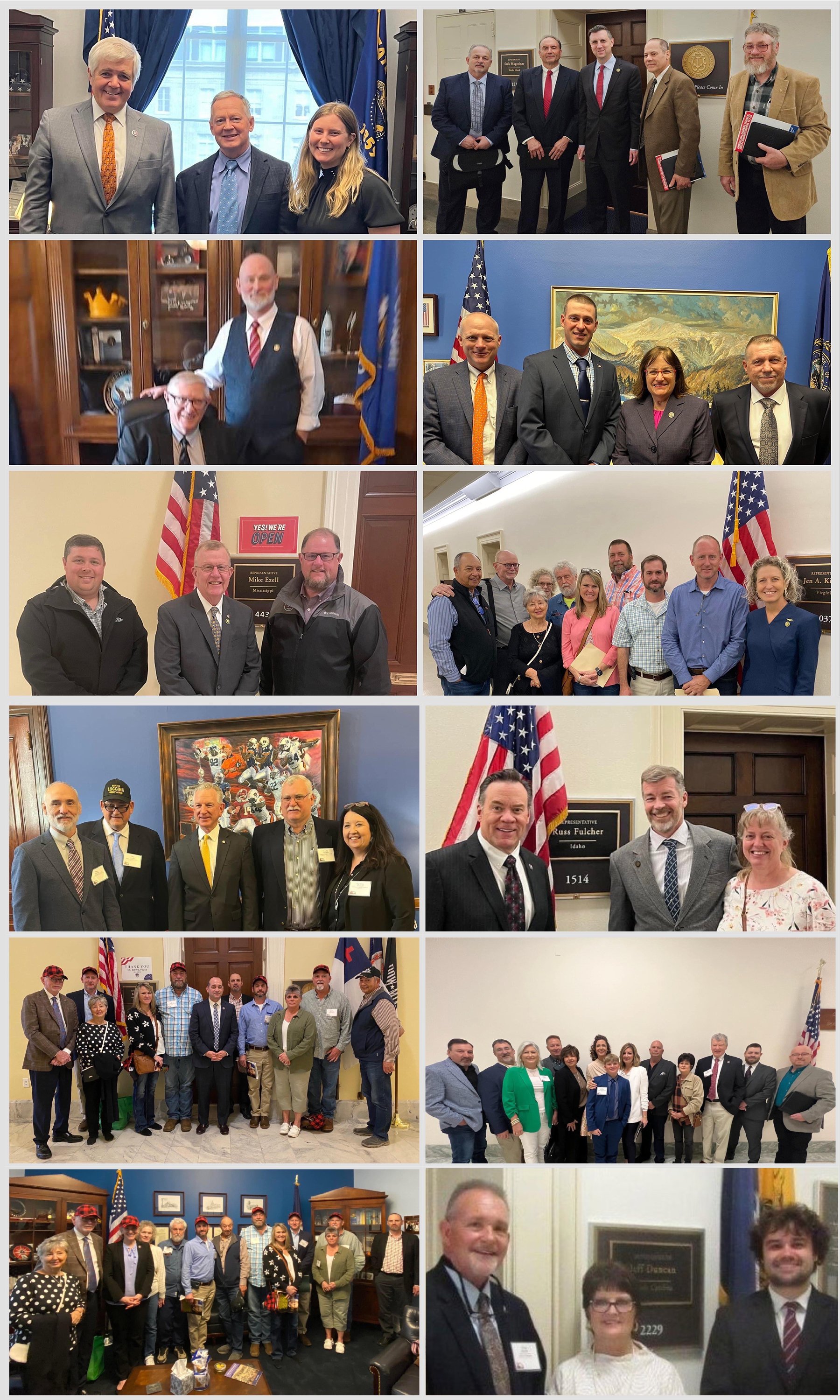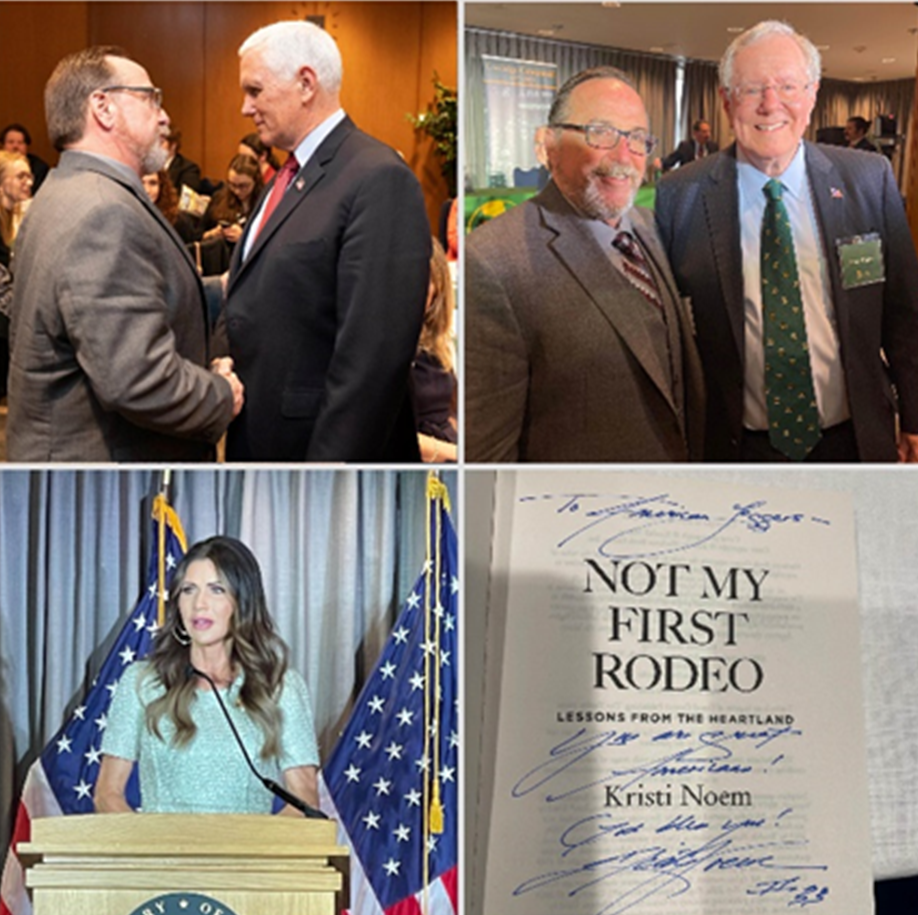WASHINGTON, D.C. — U.S. Representatives Abigail Spanberger (D-VA-07) and Mike Gallagher (R-WI-08) today reintroduced their bipartisan legislation to help address America’s truck driver shortage by establishing a refundable income tax credit for qualified commercial truck drivers.
In 2021, American trucking companies experienced a record deficit of approximately 80,000 drivers due to hiring and retention challenges. In Virginia and Wisconsin, many trucking companies have struggled to hire drivers without offering bonuses or increased wages to qualified drivers. And to further compound this shortage, the median age of U.S. truck drivers now sits between 51 and 52-years old. This shortage has impacted all American consumers through more expensive shipping costs and delays.
The bipartisan Strengthening Supply Chains Through Truck Driver Incentives Act would provide a short-term, fast, and straightforward incentive to attract and retain new drivers. Specifically, the Spanberger-Gallagher bill would create a two-year refundable tax credit of up to $7,500 for truck drivers holding a valid Class A commercial driver’s license (CDL) who drive at least 1,900 hours in the year. Additionally, it would help get more Americans on the road by establishing new incentives for Americans to enter registered trucking apprenticeships.
“During the pandemic, truckers didn’t have any remote options — yet they went to work every single day to keep our economy moving and our communities strong. Our country needs to step up and recognize their hard work — and we need to encourage more Americans to enter this industry,” said Spanberger. “Throughout Virginia, I hear about the need to address our chronic truck driver shortage. Our bipartisan bill would help bring more drivers into the fold, keep them on the highway, and reward them for their loyalty. I want to thank Congressman Gallagher for his continued partnership on this legislation, and I look forward to seeing more young Americans hop in the driver’s seat.”
“The truck driving industry is facing a massive workforce shortage that’s disrupting nearly every aspect of our supply chains,” said Gallagher. “We need to encourage more young men and women to join this career path, and this bipartisan bill is a common sense way to recruit and retain more drivers to keep our shelves stocked and our economy moving.”
Spanberger and Gallagher first introduced their bipartisan bill in April 2022.
The Spanberger-Gallagher legislation is endorsed by the American Trucking Associations, American Loggers Council, Virginia Trucking Association, Virginia Farm Bureau, Virginia Loggers Association, Virginia Agribusiness Council, National Grocers Association, International Foodservice Distributors Association, American Building Materials Alliance, Forest Resources Association, Hardwood Federation, Wood Machinery Manufacturers of America, Third Way, and National Pork Producers Council.
“Reducing the nationwide shortage of qualified truck drivers will require investment in developing the next generation of trucking talent. Even as driver pay continues to rise at a historic clip, the Strengthening Supply Chains Through Truck Driver Incentives Act will provide even more incentive for those considering a career in trucking but by providing substantial tax credits to reduce their federal tax liabilities. The bill also would provide relief for Americans currently driving trucks, helping the industry retain these essential workers. This bipartisan legislation will make a meaningful difference in the lives of new truckers, helping them move into one of the few professions in today’s economy that can provide a middle-class lifestyle without the time and expense of a four-year college degree. ATA thanks Reps. Abigail Spanberger and Mike Gallagher for their leadership on this critical issue and for being strong advocates for America’s truck drivers,” said Chris Spear, President & CEO, American Trucking Associations.
“Raw material transportation is the weak link in the forest products industry supply chain. These challenges are compounded by a lack of drivers, escalating fuel prices, crisis level insurance premiums, unique operational conditions, and demographics. It is imperative that actions be taken to improve the opportunities to attract truck drivers into the industry. Without drivers nothing moves. Therefore, the American Loggers Council strongly supports the bipartisan Strengthening Supply Chains Through Truck Driver Incentives Act sponsored by Representatives Abigail Spanberger and Mike Gallagher. This legislation will provide the necessary incentives to support the ‘pipeline’ of drivers,” said Scott Dane, Executive Director, American Loggers Council.
“The pandemic and supply chain issues have shown us the importance of having an adequate supply of qualified truck drivers. The trucking industry currently has a shortage of nearly 80,000 drivers and the Strengthening Supply Chains Through Truck Driver Incentives Act provides a short-term, fast, and straightforward incentive to retain and attract new and former drivers. We applaud Reps. Spanberger and Gallagher for this effort to enhance trucking’s workforce and the efficiency of our nation’s supply chain,” said P. Dale Bennett, President & CEO, Virginia Trucking Association.
“The Virginia Loggers Association strongly supports the reintroduction of the Strengthening Supply Chains Through Truck Driver Incentives Act legislation in the 118th Congress. We believe that Congresswoman Abigail Spanberger and Congressman Mike Gallagher understand the needs of the forest products industry and the many other industries that depend upon commercial hauling. Virginia forest logging businesses are reporting a major shortage of qualified commercial drivers, and this is also occurring across America,” said Ron Jenkins, Executive Director, Virginia Loggers Association.
“The ongoing labor shortage has hit the agricultural supply chain hard, especially when it comes to finding enough long-haul drivers to transport farm inputs, commodities and food products. Of course, agriculture is no stranger to worker shortages, and if we’re going to ensure the stability of our nation’s food supply in the long-term, we must provide short-term, fast, and straightforward incentives to attract and retain drivers. The Strengthening Supply Chains Through Truck Driver Incentives Act will help ensure farms can continue producing food, fiber and fuel sustainably and that those products can make it out the farm gate to processing facilities and consumers,” said Wayne F. Pryor, President, Virginia Farm Bureau.
“Our members continue to face supply chain challenges, especially in transporting agricultural and silvicultural materials. The Virginia Agribusiness Council supports the Strengthening Supply Chains Through Truck Driver Incentives Act as an important tool for attracting and retaining qualified truck drivers,” said Cliff Williamson, Executive Director, Virginia Agribusiness Council.
Specifically, the Strengthening Supply Chains Through Truck Driver Incentives Act would:
Create a new refundable tax credit of up to $7,500 for truck drivers holding a valid Class A CDL who drive at least 1,900 hours in the year. This tax credit would last for two years (2023 and 2024).
Create a new refundable tax credit of up to $10,000 for new truck drivers or individuals enrolled in a registered trucking apprenticeship. This tax credit would also last for two years.
Allow new truck drivers to be eligible for the credit if they did not drive a commercial truck in the previous year or drive for at least 1,420 hours in the current year. They may receive a proportion of the credit if they drive less than 1,420 hours in the year, but drove at least an average of 40 hours a week upon starting to drive.
Click here for full bill text.

















